Returning to Xinxiang, the city where I’d lived till I was four, feels like returning to a former house you had once loved but now barely remember. As you curve your hands around the familiar shape of the door handle, you’re struck with a sense of nervous apprehension. Will the furniture be in the same places as you’d left them? Will the color of the drapes be to your taste? Who will you find lounging on the couches? Have the posters of your favorite shows been replaced with discount Walmart art prints? You hesitate but not for long. The curiosity humming in the back of your mind is greater than the knot of apprehension in your guts. Breathing deeply, you twist the handle and push.
The house reveals itself piece by piece like the putting together of a puzzle. First you notice the familiar yet distant scent of vehicle exhaust, oven hot pastries, sewage, brick dust, and fried meats dressed in voluptuous amounts of spices, sauce, and grease. Then comes the deluge of sounds, some artificial—the rumble of hundreds of crisscrossing vehicles, the throaty calls of vendors hawking their wares, music blasting from shops, their lyrics blurring together into a fog of meaningless phrases–and others natural—the thump of a watermelon when it falls off someone’s stall, the singing of crickets in the warm summer heat, the clap of thunder before the start of pattering rain.
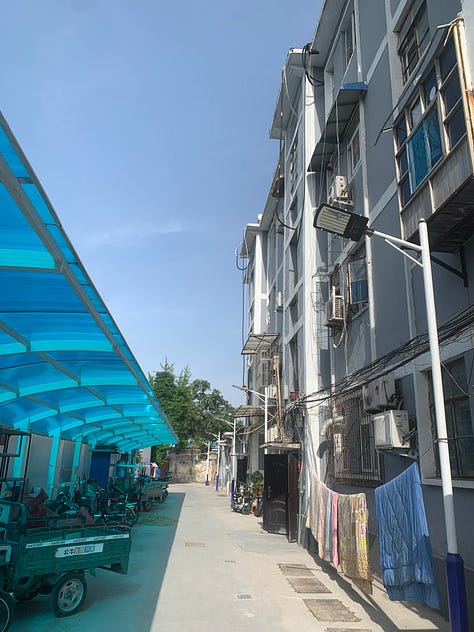

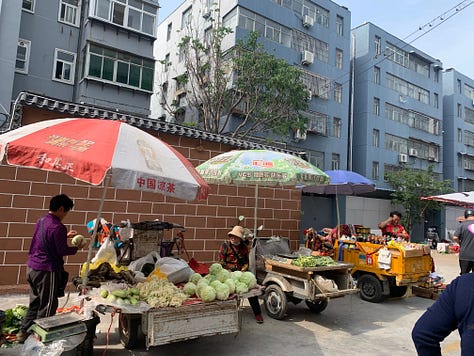
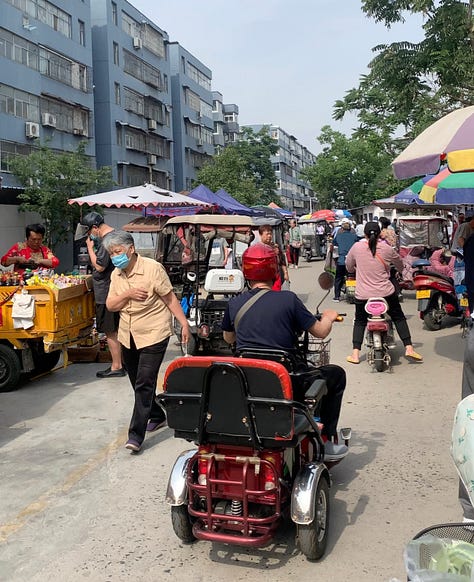
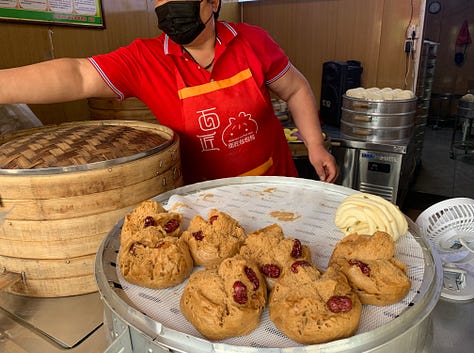
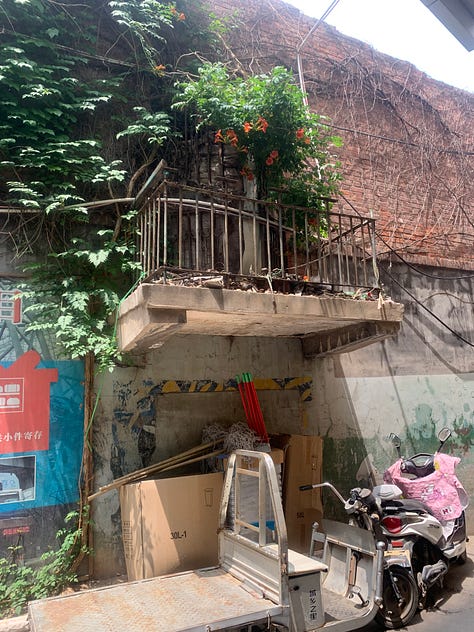
And the sights. Your eyes can drink and drink for weeks and still, the feasting table remains near bursting. Electric scooters crammed so tightly together, they look like a single, multicolored stream of metal and plastic. Bins brimming with glossily packaged sweets. Hunks of raw pork and beef hanging from hooks while their vendors fan themselves in the shade, glancing hopefully at the faces of passersby. Mounts of plastic wrapped clothing waiting expectantly under racks overstuffed with blouses, dresses, and pants. Red new year’s paper plastered around door frames and on doors, some peeling, some as fresh as if they’d been applied yesterday. Heaping platters of meats and vegetables, their rich hues of green, red, brown, yellow, black, and white complementing each other like tiles in a mosaic. Squat apartment buildings with cracked façades crouching in the shadows of gleaming high-rises.
It appears that folks here are as talented at cramming shelves with goods as they are at cramming rooms with people and streets with vehicles.
Ambling through the organized pandemonium, you strain your senses trying to sift the familiar from the unfamiliar, the old parts from the renovated ones. But regardless of how you much you strain, stumbling and reaching, the lines between new and old eludes you. Of course, you realize, your shoulders sagging a little, it’s not that simple. Paradoxical as it sounds, the old feels as fresh as the new and the new feels as timeworn as the old, not because they actually are but because they’re so intermingled your knife of discernment can’t slice the two apart.
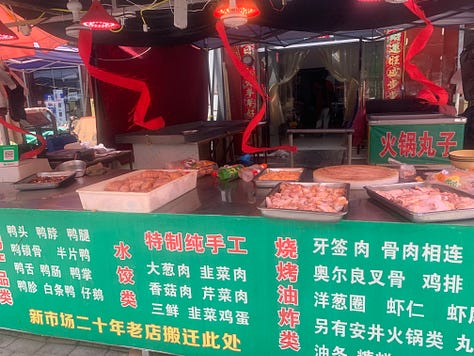
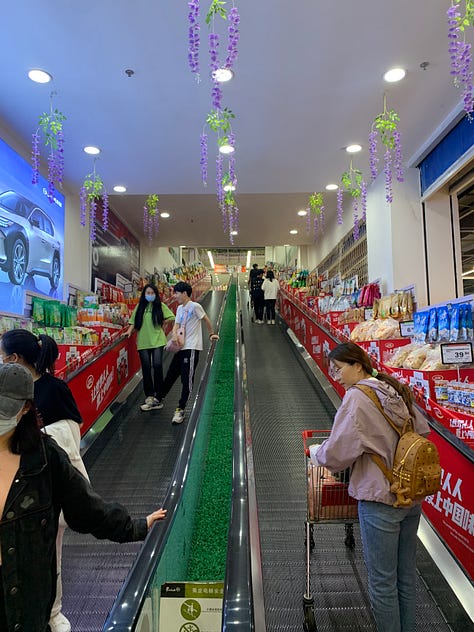


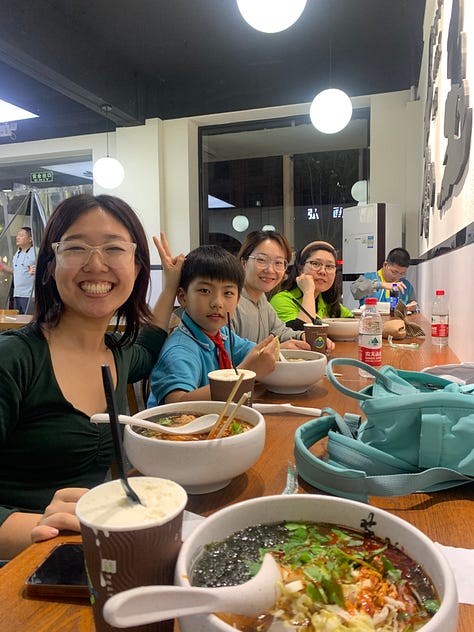

Take for example the walk through the alley that leads to your grandmother’s house. She lives in an older district, so half of the inhabitants of her building have moved out. The yard is less lively than it once was. Where usually you’d see neighbors chatting by the stairwell entrance, now you see blank pavement. Where once there were little brick storehouses opposite the apartment, now you see a blue plastic awning shading two dozen electric bikes. A new coat of sea foam blue gives it a fresh shine. Still, many old quirks are preserved. That indescribable dust smell lingers still. Sheets and clothes sway on clotheslines. The neighbor’s dog yaps as you pass. You half-expect to see teachers corralling an unruly crowd of students every time you pass by your old preschool. But the only students left nowadays are the phantoms of your imagination.
Experiencing Xinxiang feels like experiencing a city for the first and the thousandth time. You recognize it but not quite. You feel at ease with your surroundings and anxious in it. You feel like you belong but minor details such as the shorts you wear or the way you can’t stitch together the correct phrase to tell a story reminds you that you are past belonging. Xinxiang is a shell whose spiral corridors you still recall but can no longer comfortably fit.
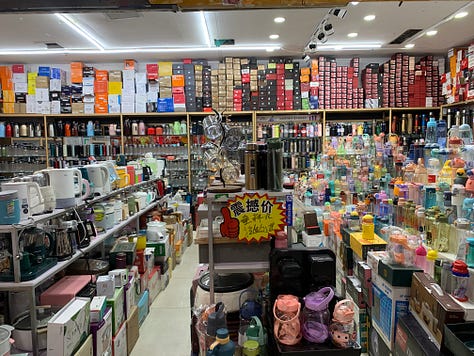
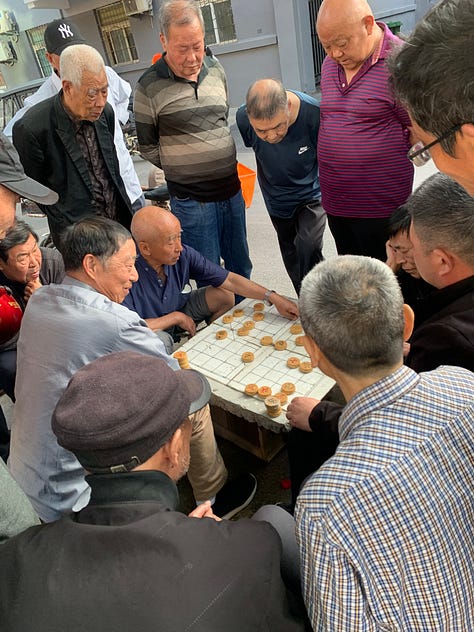
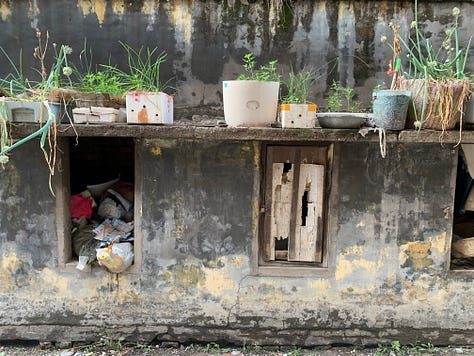

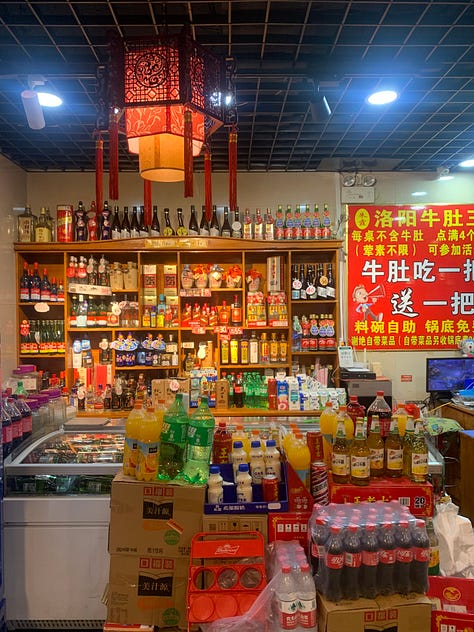
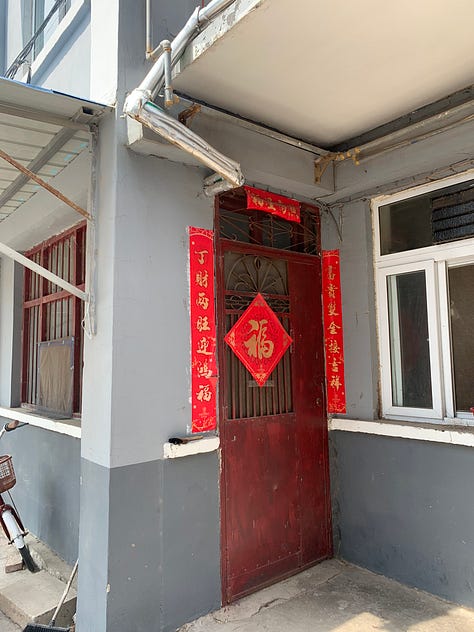
The fallibility of your memory is partly to blame for your struggle to distinguish between what’s new yet different about your experience of Xinxiang. If you were able to perfectly remember your past experience of the city, you’d have a clear picture to which you can compare your current experience. Unfortunately, like pictures, memories fade and blur over time. Filling in the gaps in your head even as you make new memories feels like waking from a deep sleep. Every moment you walk a liminal tight rope between remembering and discovering. Every moment the past and the present converge closer.
You recall seeing piles of steaming date buns side by side with succulent cream rolls as you watch a cook heap tray after tray of sweets into the display case. You recall the first time you felt silk on your tender seven-year-old skin as you brush your fingers across the red and gold embroidery of a Qipao hugging a mannequin. You trace the shape of your cheek and jaw as you observe the small, round face beaming up at you from between the covers of a fraying photo album.
What will happen when the tightrope snaps and the past and present finally kiss? You wind back to the front door. Already the sounds of street vendors, honking vehicles, and singing crickets sound distant. A gentle nudge is all it takes for the door to swing open, letting you out of the place you’d once called home. Your eyes sweep the interior one last time.
When the past and present kiss, when the edge of novelty has dulled under the relentless grind of Father Time’s wheel, well, that’s when it’s time to leave. Not permanently, of course—A piece of you has been forged here, a small spark of Xinxiang will always dwell within you—but just for a little while. Then, you’ll be back as curious and eager and awed as you are today.
You step across the threshold and allow the door to close behind you
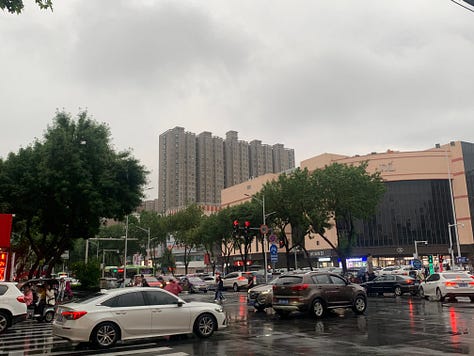
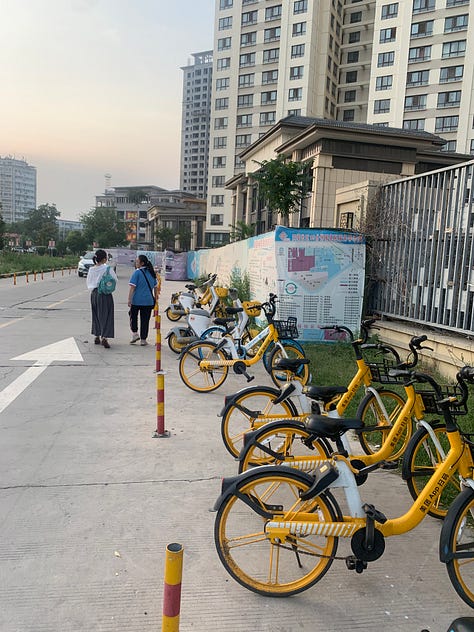
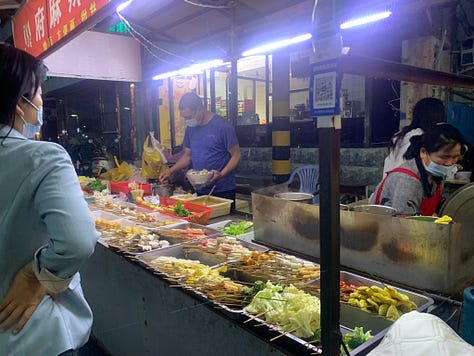
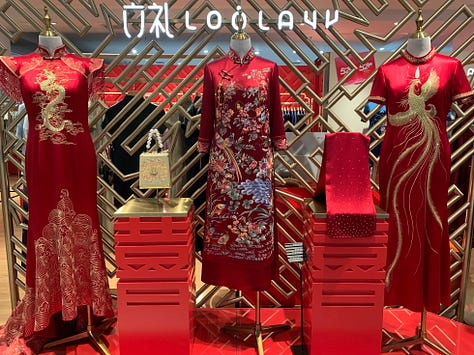
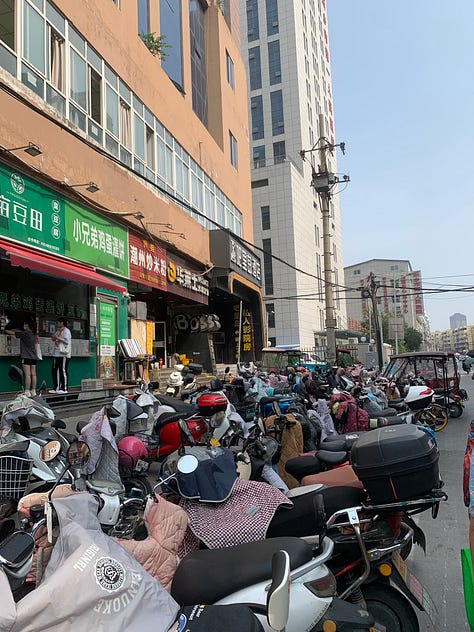
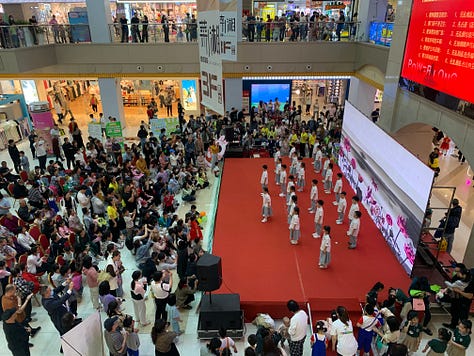

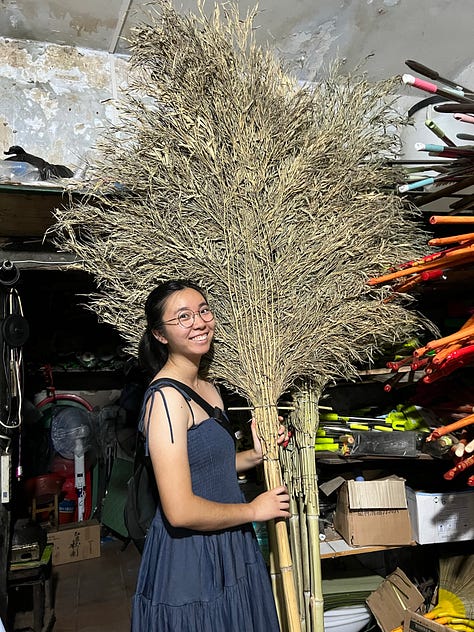

Subscribe to join the adventure!
If you enjoyed today’s article, you’ll enjoy the rest of this newsletter. I collect insights on the eccentric, the mundane, and everything in between while traveling the globe. Subscribe to get a thoughtfully crafted selection of personal stories and travel tips delivered to your inbox every week.
Know somebody who would enjoy this newsletter? Brighten up their day by sharing Macy Sees The World on social media or by sending them a direct link. Thank you for being part of this community! I’ll talk to you next week.





This resonates with my experience of complete sensory overload in China. More there than in any other place I've visited, especially in train stations.